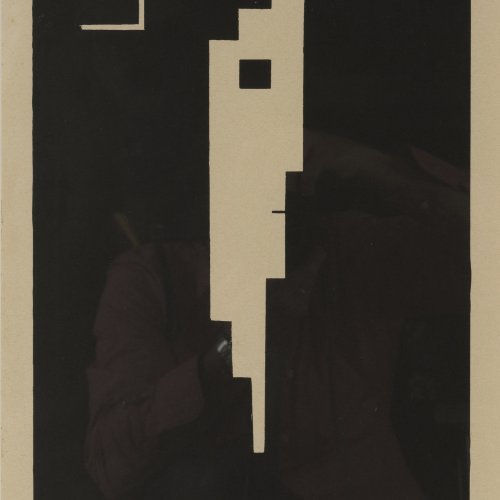Biography
Oskar Schlemmer spent several years of his childhood in Göppingen in Baden-Württemberg. In 1899 he moved to his sister Wilma Morgenstern on Marstallstraße. He attended secondary school and was recognized by two art teachers as a great talent. They encouraged him to pursue a career as an artist. He got himself a paint box and created a herbarium, the plants of which he painted in watercolor. In April 1902 he proudly reported that he had won the first prize four times in memory and freehand. Oskar Schlemmer was unable to finish school, moved to Stuttgart and entered Wölffel & Kiessling's Art Institute for Inlaid Art as an apprentice. This was followed by studying at the school of applied arts and the art academy, and moving to Berlin. In 1920 he was appointed by Walter Gropius as head of the sculpture department and the stage workshop at the Bauhaus in Weimar. After the Nazis seized power, Schlemmer was considered a degenerate artist. He retired to internal emigration and died in Baden-Baden in 1943.
His friend, the painter and teacher Helmut Baumann, who was the addressee of a postcard that Quittenbaum sold at the '100 Years Bauhaus' auction, lived in Göppingen. For Baumann, Oskar Schlemmer was an important conversational partner until his death. The card 'Two heads against each other' from 1941 is watercolor and ink on a stamped pre-made card, addressed and written 'To Mr. Hptlehrer (head teacher) H. Baumann, Göppingen, Pfarrstr. 9' and postmarked from Elberfeld on July 17th 1941. On the back, in the handwriting of Oskar Schlemmer, is: 'Dear Mr. Baumann, this is just a distant sound of the conscious (unconscious), that makes conscious, an unconsciousness, which is not present to me at the moment. The conscious is itself, is ‘guaranteed’ temporary / Forgive me. But I guard these reminiscences like old wines, although I have no guardians of them, just reminiscences. All the best and best regards to you and yours, OskSchlemmer.’
According to the Schlemmer expert, Karin von Maur, this text is probably a 'text encrypted before the Nazi censorship, the content alludes to which we do not know, since both the writer and the addressee died.'
Objects by Oskar Schlemmer
-
Sold

'Neuer Kunstsalon Stuttgart', 1913, authorised reprint prior to 1987
Hammer Price: 200 €
